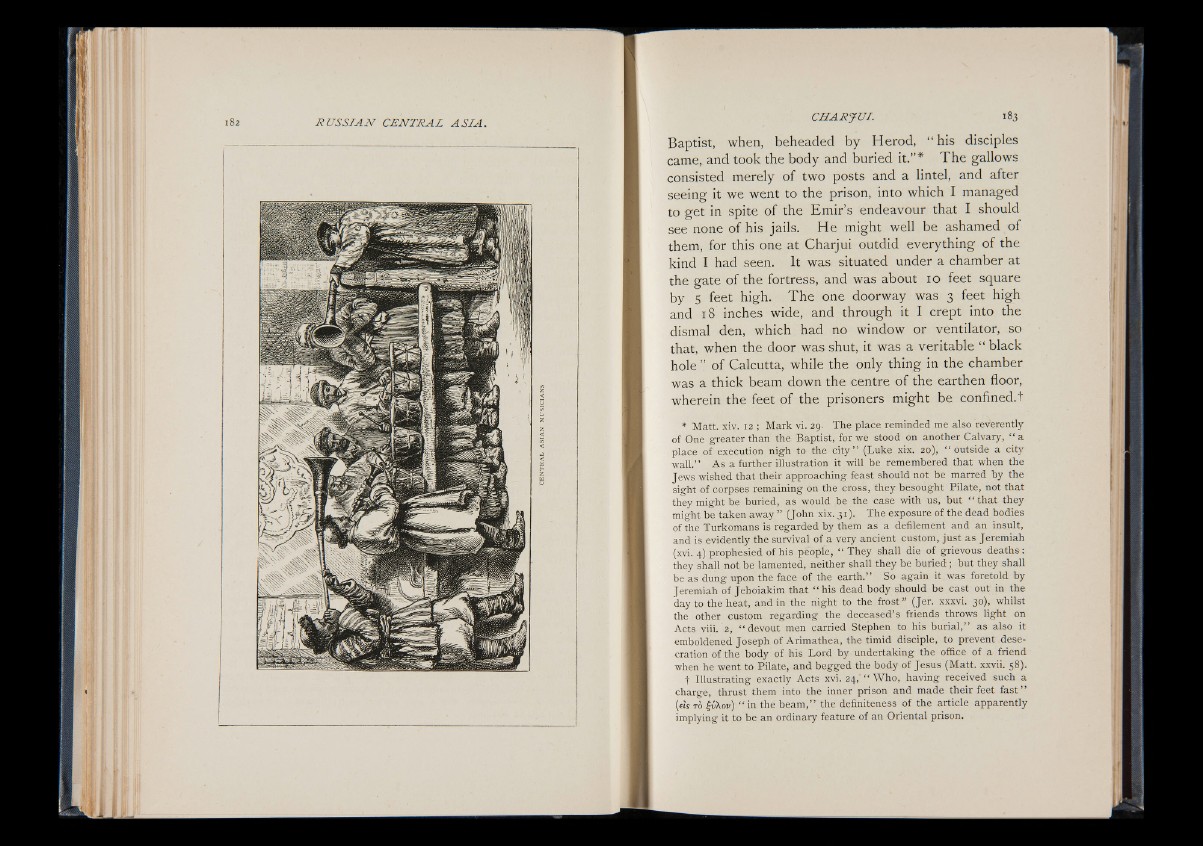
CHARJUI.
Baptist, when, beheaded by Herod, “ his disciples
came, and took the body and buried it.” * T he gallows
consisted merely of two posts and a lintel, and after
seeing it we went to the prison, into which I managed
to get in spite of the Emir’s endeavour that I should
see none of his jails. He might well be ashamed of
them, for this one at Charjui outdid everything of the
kind I had seen. It was situated under a chamber at
the gate of the fortress, and was about 10 feet square
by 5 feet high. The one doorway was 3 feet high
and 18 inches wide, and through it I crept into the
dismal den, which had no window or ventilator, so
that, when the door was shut, it was a veritable “ black
hole ” of Calcutta, while the only thing in the chamber
was a thick beam down the centre of the earthen floor,
wherein the feet of the prisoners might be confined.t
* Matt. xiv. 12 ; Mark vi. 29. The place reminded me also 'reverently
of One greater than the Baptist, for we stood on another Calvary, “ a
place of execution nigh to the city” (Luke xix. 20), “ outside a city
wall.” As a further illustration it will be remembered that when the
Jews wished that their approaching feast should not be marred by the
sight of corpses remaining on the cross, they besought Pilate, not that
they might be buried, as would be the case with us, but “ that they
might be taken away ” (John xix. 31). The exposure of the dead bodies
of the Turkomans is regarded by them as a defilement and an insult,
and is evidently the survival of a very ancient custom, just as Jeremiah
(xvi. 4) prophesied of his people, “ They shall die of grievous deaths :
they shall not be lamented, neither shall they be buried; but they shall
be as dung upon the face of the earth.” So again it . was foretold by
Jeremiah of Jehoiakim that “ his dead body should be cast out in the
day to the heat, and in the night to the frost” (Jer. xxxvi. 30), whilst
the other custom regarding the deceased’ s friends throws light on
Acts viii. 2, “ devout men carried Stephen to his burial,” as also it
emboldened Joseph of Arimathea, the timid disciple, to prevent desecration
of the body of his Lord by undertaking the office of a friend
when he went to Pilate, and begged the body of Jesus (Matt, xxvii. 58).
f Illustrating exactly Acts xvi. 24,' “ Who, .having received such a
charge, thrust them into the inner prison and made their feet fast
(els TO t;v\ov) “ in the beam,” the definiteness of the article apparently
implying it to be an ordinary feature of an Oriental prison.